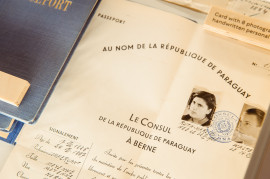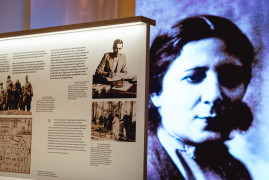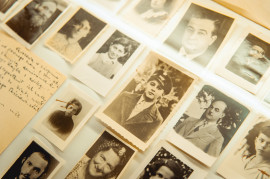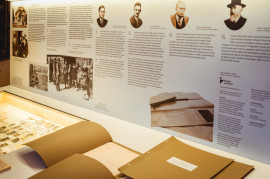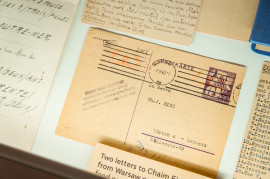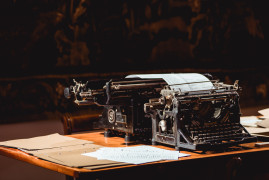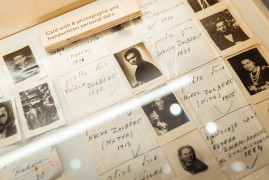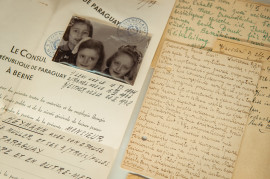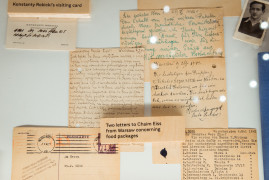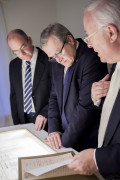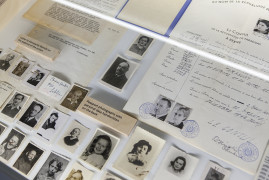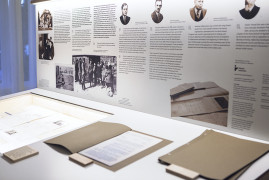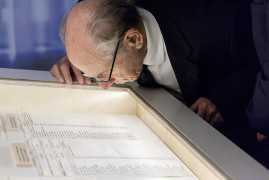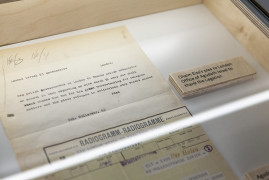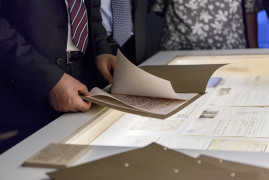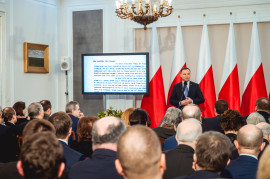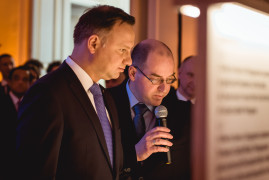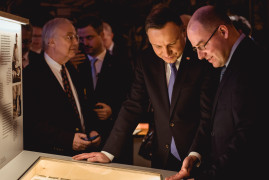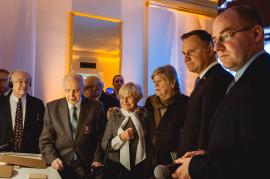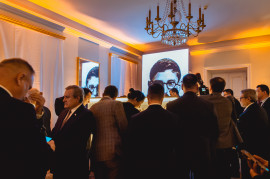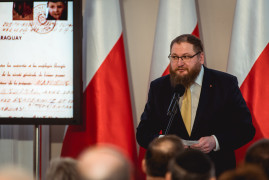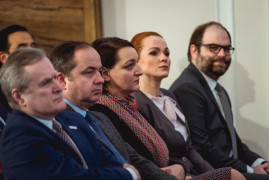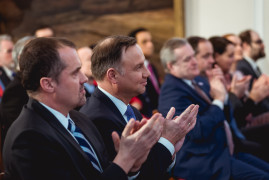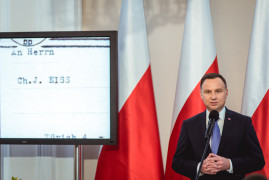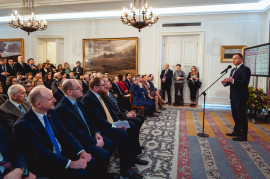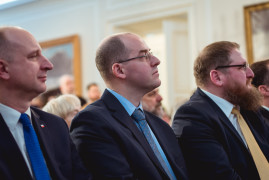Passports | an exhibition devoted to the Ładoś Group - Instytut Pileckiego
exhibition
Passports | an exhibition devoted to the Ładoś Group
The exhibition shows the role played by the Polish Government-in-Exile and the Polish Underground State in informing the world about the Holocaust, and in activities undertaken to save Jews on territories occupied by Nazi Germany.
The exhibition shows the role played by the Polish Government-in-Exile and the Polish Underground State in informing the world about the Holocaust, and in activities undertaken to save Jews on territories occupied by Nazi Germany.
It was organized in connection with research conducted by the Polish Embassy in Switzerland and the Pilecki Institute, which resulted in the publication of a list of persons of Jewish origin who thanks to the efforts of the so-called Ładoś Group received passports of various Latin American countries. Many of them owed their lives to these documents. The exposition is an exhaustive presentation of the activities of the Ładoś Group and its leading figures, chief among them Chaim Eiss and Aleksander Ładoś. The artefacts include some of the original passports and correspondence between Chaim Eiss and Polish diplomats. Letters sent by Jews detained in ghettos and by Abraham Silberschein, who was one of the intermediaries in contacts between Polish Jews and the Legation, are also on display.
The exhibition premiered in September 2018 at the Polish Embassy in Bern. It was opened to the public by the Minister of Culture and National Heritage, Piotr Gliński. In subsequent months the exposition was shown in other Swiss cities, and later in Poland: at the Belweder, with the attendance of the President of the Republic of Poland, Andrzej Duda, and in Markowa at the Museum of Poles who Saved Jews in World War II. In December 2019, it was translated into Hebrew and displayed in Jerusalem.
The Activities of Aleksander Ładoś
Ambassador Ładoś, who during World War II served the Polish Government-in-Exile as its representative in Switzerland, instructed his personnel to falsify documents issued by third countries in an attempt to save at least some of Poland’s Jewish community. The “Ładoś passports” were intended to rescue their bearers from the Holocaust. The documents were sent to ghettos and camps throughout occupied Poland and Holland, and also to a great number of citizens of other European countries. Nearly one half of the papers certifying Paraguayan citizenship were forged by Konstanty Rokicki, the Vice-Consul, while the remainder were probably authored by Stefan Ryniewicz with the help of an embassy employee, Julisz Kühl. Some of the documents, passports and certifications of citizenship of Honduras, Haiti and Peru were purchased with the Ambassador’s consent by two Jewish activists, Abraham Silberschein and Chaim Eiss, who were also members of the Group. The entire operation received the support of the Polish government, which pressured representatives of Latin American states to recognize the falsified documents for humanitarian reasons.
In December 2019, the Pilecki Institute issued “The Ładoś list. A register of persons in whose names the Legation of the Republic of Poland and Jewish organizations in Switzerland made out Latin American passports during World War II”. The publication, which enumerates 3,262 people who benefited from the operation and whose identities have been determined to date, is the result of research performed by employees of the Polish Embassy in Bern and the Pilecki Institute with the support of experts from the Institute of National Remembrance, the Jewish Historical Institute and the Auschwitz-Birkenau State Museum.
The exposition was developed by: Hanna Radziejowska, Dr. Wojciech Kozłowski – the Director of the Pilecki Institute, Dr. Jakub Kumoch – the Ambassador of the Republic of Poland to Switzerland, Joanna Kumoch, and Jędrzej Uszyński
Exhibition concept: Hanna Radziejowska, Dr. Wojciech Kozłowski – the Director of the Pilecki Institute, Dr. Jakub Kumoch – the Ambassador of the Republic of Poland to Switzerland, Joanna Kumoch, and Jędrzej Uszyński
Consultants: Monika Maniewska, Bartłomiej Zygmunt
Design: zespół wespół Project
Execution: Pracownia Tryktrak
See also
- Oppositional Engagement of Women in Authoritarian and Totalitarian Systems of the 20th Century: Poland in a Comparative European Perspective (1919–1989)
conference
Oppositional Engagement of Women in Authoritarian and Totalitarian Systems of the 20th Century: Poland in a Comparative European Perspective (1919–1989)
We invite scholars to participate in an international academic conference devoted to various forms of activity undertaken by women who engaged in opposition and dissent under authoritarian and totalitarian rule in the 20th century.
- CALL FOR PAPERS: Oppositional Engagement of Women in Authoritarian and Totalitarian Systems of the 20th Century: Poland in a Comparative European Perspective (1919–1989)
conference
CALL FOR PAPERS: Oppositional Engagement of Women in Authoritarian and Totalitarian Systems of the 20th Century: Poland in a Comparative European Perspective (1919–1989)
We invite scholars to participate in an international academic conference devoted to various forms of activity undertaken by women who engaged in opposition and dissent under authoritarian and totalitarian rule in the 20th century.
- Pilecki Institute International Teachers and Educators Program 5th edition. Post-war decade. | Call for participants
project
Pilecki Institute International Teachers and Educators Program 5th edition. Post-war decade. | Call for participants
Recruitment for the fifth edition of the Pilecki Institute International Teachers and Educators Program has begun. We invite teachers and educators from around the world to participate in the online conference. This year, we are focusing on the history of
